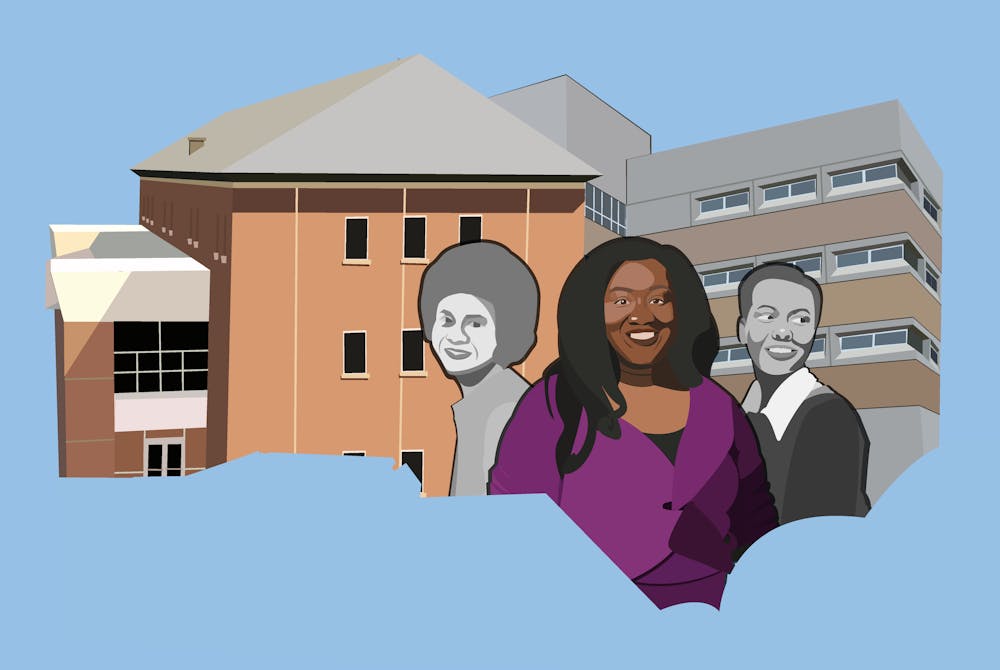Donald Trump and his executive posse have repeatedly recited their polemics opposing the politicization of history under the efforts of diversity, equity and inclusion. But history has always been political, and in America, constantly racialized. Amid these institutional attacks, the need for community-based celebrations of marginalized peoples’ victories has never been more vital. If our university, state and federal government won’t stand for its citizens, it’s on us to stand for our neighbors.
As North Carolinians, we celebrate the enduring legacies of Black Tar Heels then and now. As UNC students, we must recognize the handprints of enslaved labor impressed into the very foundation of this university, names in brick and stone of the unnamed ancestors of our classmates and colleagues.
Honoring Black Tar Heels of the past
Brothers LeRoy and Ralph Frasier and their classmate John Lewis Brandon first integrated our first public university in the United States in 1955. David Dansby Jr. was the first African American to graduate with his bachelor’s from the University in 1961. Karen Parker was the first African American woman to enroll at UNC in 1963. We list these names to elevate their legacies, being as vital to our university as Ruffin, Kenan or Cameron. Before the bravery of these North Carolinians, UNC was not a university of the people, excluding North Carolinians who were not white and male.
Sonja Haynes Stone was a professor of African American studies for decades, from 1979 onward. Her steadfast support of student advocacy, including Black Student Movement and Campus Y, placed her as a rare faculty member and advisor for decades of Carolina students. The Sonja Haynes Stone Center is one of the few buildings on campus to be named after a Black person, much less a Black woman.
Zora Neale Hurston's tenure at North Carolina Central University was underlined by her close interactions with University faculty and student body. Reportedly, she sat in on writing workshops and classes taught by fellow playwright and UNC professor Paul Green. Although she was denied admission, Hurston was among those on Green’s roster for a Radio Writing and Production elective class, which likely occurred outside the official registrar.
Similar to Hurston, after being denied admission to the UNC School of Law, North Carolinian Pauli Murray went on to be the first Black person to earn a PhD-level degree from Yale Law School. She would go on to become a trailblazer in the fight for civil rights — Murray fought to defend the rights of women, people of color and LGBTQ+ people and laid the groundwork of the argument that would overturn Plessy v. Ferguson.
Championing Black Tar Heels of the future
Given recent federal, state and UNC System actions rolling back DEI efforts, it’s vital to intentionally highlight the historic contributions of people of color in the United States. Understanding the history of one’s home is essential to making it a better place — the journey to a more empathetic, supportive community starts here. A public university which purports institutional neutrality while resting on a foundation of labor exploitation further suppresses the accomplishments of marginalized communities who have faced centuries of injustice. Contemporary cries for a “meritocracy” are blatantly disingenuous given that unrecognized and uncompensated labor of enslaved people at our university.




